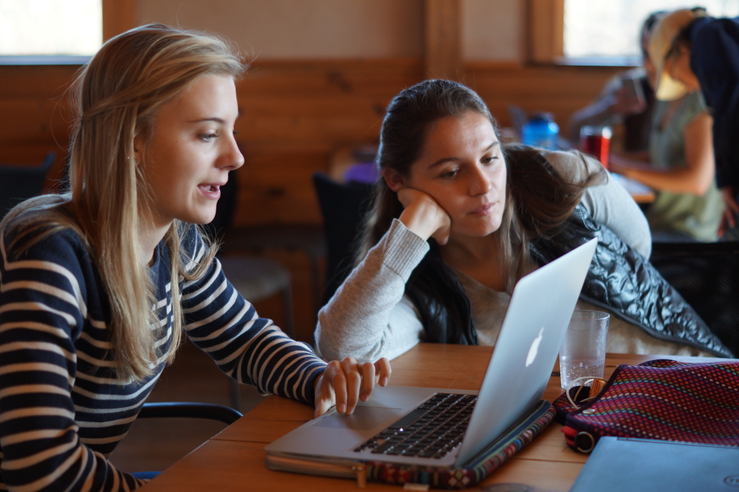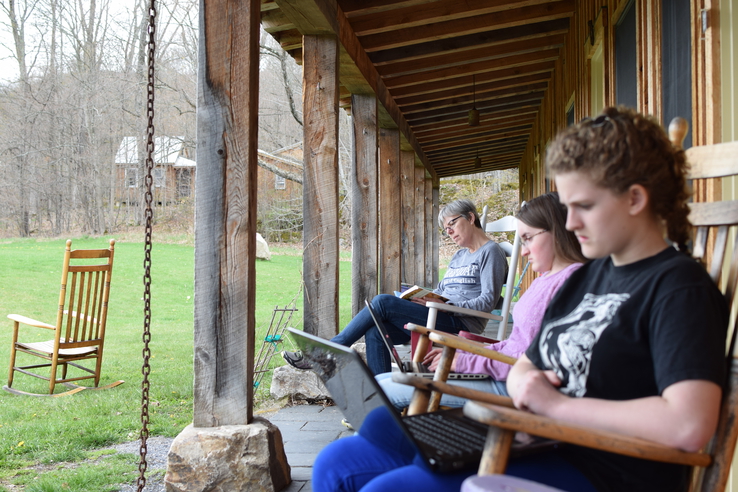
Considering new perspectives and moving into the interview process
A big part of my work this week was beginning to draft some interview questions (something I think will be a continued goal in the coming week), and one of my biggest challenges there was trying to create questions that were probing without being leading: we want to get to the heart of the matter as much as possible, but we also can’t assume that we know what is happening or how the experience of an individual has played out. Ideally, these questions would really be springboards to launch a more organic and meaningful discussion, but I think it’s good to at least have some framework (especially since, realistically, by the very nature of an organic conversation it is not something that can be forced). I created some questions for New American and ELL students, as well as a set for teachers of those students, but there are a lot more stakeholders to involve and address.
I also drafted a sample email to send to people who we’d like to interview, but again I should stress that this is just a template on which to build. These emails are asking for a favor, so while remaining professional, they should also be tailored to the specific person and cognizant of the relationship that the member of our team emailing them has with that person; emails requesting the same thing but going out to, say, a government official and a teacher with whom the person has a close relationship should not look the same.
Another thing I did this week was have short conversations on our topic with two people in my life, my friend Natalie and a teacher who I have a really good relationship with. Natalie said that, overall, she had not had much contact with New American and English Language Learner students as a result of our small, rural, non-diverse school. She has interacted with some New American and ELL students through sports (specifically track and field), but that was almost solely because she competed against other divisions, and the larger schools in Vermont typically have more diverse populations. This limited experience is, unfortunately, probably true of a lot of students in Vermont, not through fault of their own but because of their homogeneous communities.
The teacher I spoke with approached the topic with a broader scope; as a part of the professional educational community he has more exposure to the statewide situation. His sense was that smaller, more rural VT schools are “on a spectrum between not very well prepared and not at all prepared to engage with these learners,” while larger communities are in a better position financially and culturally to support New American and ELL students. He noted that in his five years in his current position, he had had very little contact with these students, which is very telling. He also recalled a job in Maine as a band director where, although there was a higher proportion of New American and ELL students, they rarely came into his classes, because music programs are almost always electives and any time in their schedule which wasn’t occupied with core academics, as it were, was expected to be used to work on English skills. The discussion of this point brought up an aspect of the topic which I’d never before considered: spending so much time on learning English is essentially a necessity in such a monolingual society, but it may inhibit students from pursuing other interests (and art/music are by no means inconsequential to development). We also discussed the way that the current political situation is affecting how openly hatred and bigotry is expressed, and he made an interesting comparison (though it may not be equal to the prejudice that can be seen on a local and national scale now) to a time not so long ago in New England when Québécois French, though often spoken at home, was discouraged or even grounds for punishment when used in schools. Though it is certainly in a different context, in some ways a similar ethnocentric sentiment may persist.
I also attended a really incredible meeting over the weekend of independent organizations committed to promoting youth agency, and it got me thinking not only more deeply about agency as a concept, but about the ways in which we plan change: the facilitators were people who specialize in design thinking, and one of their models promoted the idea that by planning for the future using what you know now as a basis, you are constraining yourself because you are basing all of your future plans on your limited present knowledge. Rather, it proposed that by working backwards from an ideal situation, more efficient change can be created. (The image below represents this model.) I’m not sure we know yet what an ideal situation looks like, but I think that this model is something to consider moving forward.
Featured Image by critical thinking asylum

 Previous Post
Previous Post Next Post
Next Post







Clara,
Your point about Quebecois French relates directly to the article about language and social justice. You should read it if you haven’t yet (I put it on the resources page)! It talks a lot about how languages/slang/accents/ways of speaking that are considered “improper” are discouraged at schools, and how that can be a form of social streamlining, whether people know it or not. I really would be interested in knowing more how people’s attitude towards language influences ELL and new American students in particular. And I may have mentioned this, but the professor that is talked about in the article is one of the people I’m planning on contacting this week.
Greta
Greta,
That’s a really interesting note, thanks for pointing me in the direction of that article! I’ll be sure to read it. I think that there’s definitely a level of eurocentrism and racism involved in the way that people perceive different accents.
Clara